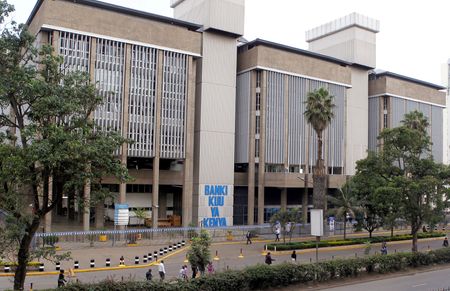By Duncan Miriri
(Reuters) -Kenya’s national assembly on Wednesday approved President William Ruto’s pick of economist and senior civil servant, Kamau Thugge, as the next central bank governor.
Thugge, who served as the principal secretary, No. 2 official, in the finance ministry until mid-2018, was nominated to the post by Ruto last month after serving as one of the president’s senior economic advisers since late last year.
He will replace Patrick Njoroge, who is retiring after serving two terms as the central bank governor since 2015.
In a voice vote, lawmakers adopted the report of the National Assembly’s finance committee, which urged the house to back his appointment after vetting his suitability for the post.
Ruto will now formally appoint him for a four-year term, which is renewable once.
Thugge, 65, holds a doctorate in economics from Johns Hopkins University in the U.S. and he worked for the International Monetary Fund for two decades, before joining the Kenyan government in 2004.
He takes over at a time the economy is beset by a long-running slide in the shilling currency, persistently high prices of energy and basic food commodities, and a heavy debt load that has strained government finances.
Thugge, who left his Treasury post in 2018 after he was charged with others in a case related to the siphoning of cash meant for the construction of dams, was later turned into a state witness in 2021 and the charges were dropped.
His predecessor, Njoroge, has maintained stable prices for most of his eight years at the helm.
He was, however, criticised by traders and importers for aggressively policing their activities, leading to the death of the interbank foreign exchange market.
Ruto’s government, which took over last September, started taking steps to revive the market in March, part of its efforts to stabilise the exchange rate.
Economic growth slowed to 4.8% last year from 7.6% in 2021. But the World Bank expects growth to edge up to 5.0% in 2023, underpinned by a recovery in agriculture.
(Reporting by Duncan Miriri;Writing by Alexander Winning; Editing by David Evans)





